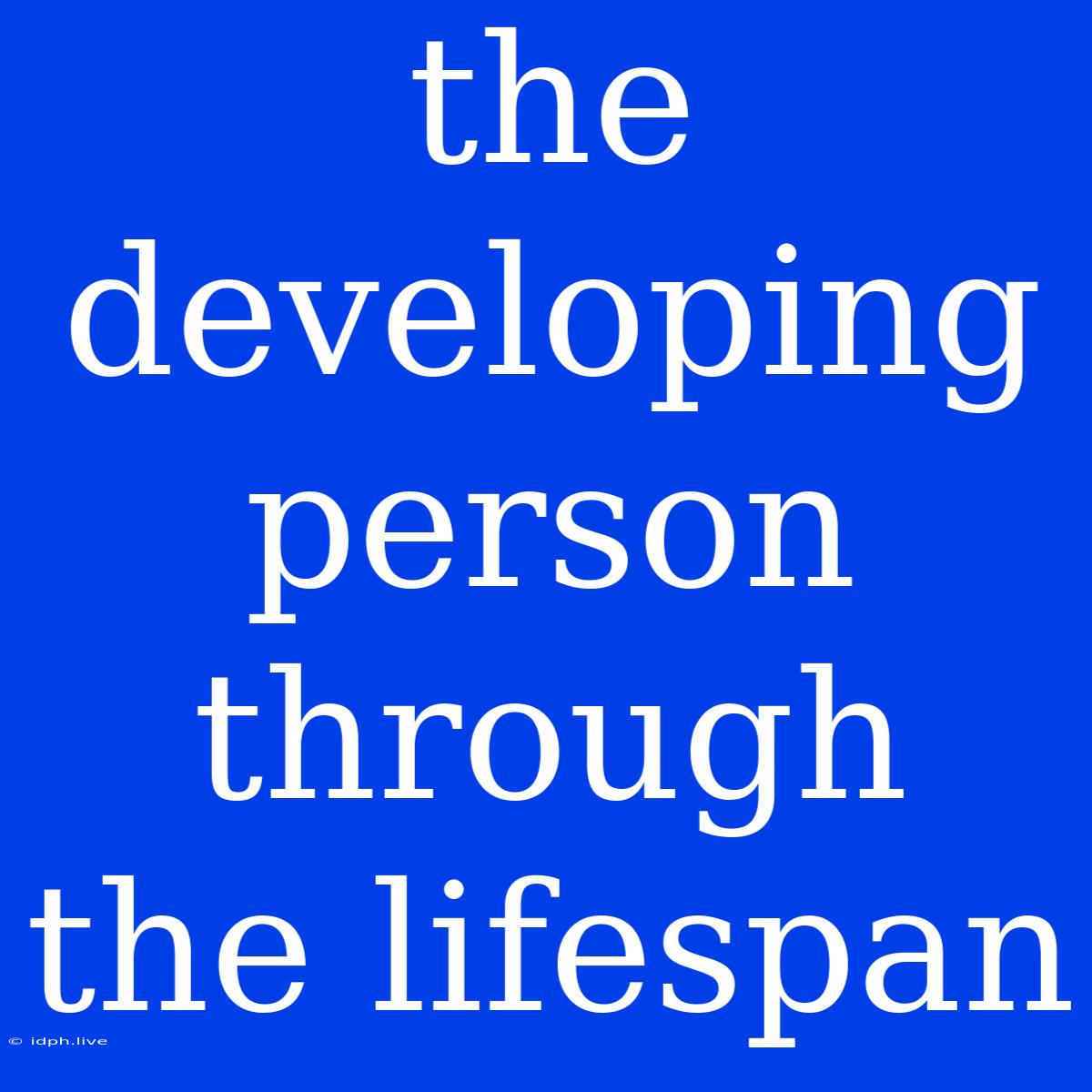The Developing Person Through The Lifespan: A Journey of Growth and Change
The human lifespan is a remarkable journey marked by continuous growth, change, and adaptation. From the moment of conception to the twilight years, individuals undergo a complex interplay of biological, cognitive, and social development. Understanding these developmental processes is crucial for comprehending the unique experiences and challenges faced by individuals at different stages of life.
Understanding the Lifespan Perspective
The lifespan perspective emphasizes the interconnectedness and continuity of development across the entire lifespan. It rejects the notion that development is solely a process of childhood and adolescence, instead highlighting the dynamic and ongoing changes that occur throughout life. This approach recognizes that individuals continue to learn, grow, and adapt to new experiences and challenges in their later years.
Key Stages of Development
The lifespan is typically divided into several key stages, each characterized by distinct physical, cognitive, and social milestones:
1. Prenatal Period (Conception to Birth): This period is marked by rapid growth and development of the fetus, laying the foundation for future health and well-being.
2. Infancy (Birth to 2 Years): This stage is characterized by rapid physical growth, the development of basic motor skills, and the emergence of language and social skills.
3. Early Childhood (2-6 Years): During this period, children begin to develop more complex language skills, engage in imaginative play, and learn important social skills.
4. Middle Childhood (6-11 Years): This stage is marked by continued physical development, the development of logical thinking skills, and the formation of peer relationships.
5. Adolescence (11-18 Years): This period is characterized by rapid physical changes, the development of abstract thinking, and the search for identity.
6. Early Adulthood (18-40 Years): This stage is marked by the establishment of independence, career development, and intimate relationships.
7. Middle Adulthood (40-65 Years): This period is characterized by a focus on career success, family life, and contributing to society.
8. Late Adulthood (65 Years and Beyond): This stage is marked by physical decline, retirement, and the search for meaning in life.
Factors Influencing Development
Several factors play a significant role in shaping an individual's development throughout the lifespan:
-
Biological Factors: Genetics, nutrition, and health status all contribute to physical and cognitive development.
-
Cognitive Factors: Learning experiences, problem-solving abilities, and the ability to think critically and creatively influence individual growth.
-
Social Factors: Family, friends, culture, and societal expectations shape an individual's social development and influence their values, beliefs, and behaviors.
Challenges and Opportunities in Development
Throughout the lifespan, individuals face a range of challenges and opportunities:
-
Physical Changes: As we age, our bodies undergo significant changes, from the physical growth spurts of adolescence to the decline in physical abilities in later life.
-
Cognitive Changes: Our cognitive abilities also change throughout life, with declines in some areas but improvements in others.
-
Social Changes: Social roles and relationships change throughout life, requiring us to adapt to new situations and responsibilities.
Conclusion
Understanding the developing person through the lifespan provides a framework for appreciating the complexity of human development and the diverse experiences individuals encounter at different stages. By recognizing the ongoing nature of development and the interplay of biological, cognitive, and social factors, we can better support individuals throughout their lives and promote optimal well-being.

